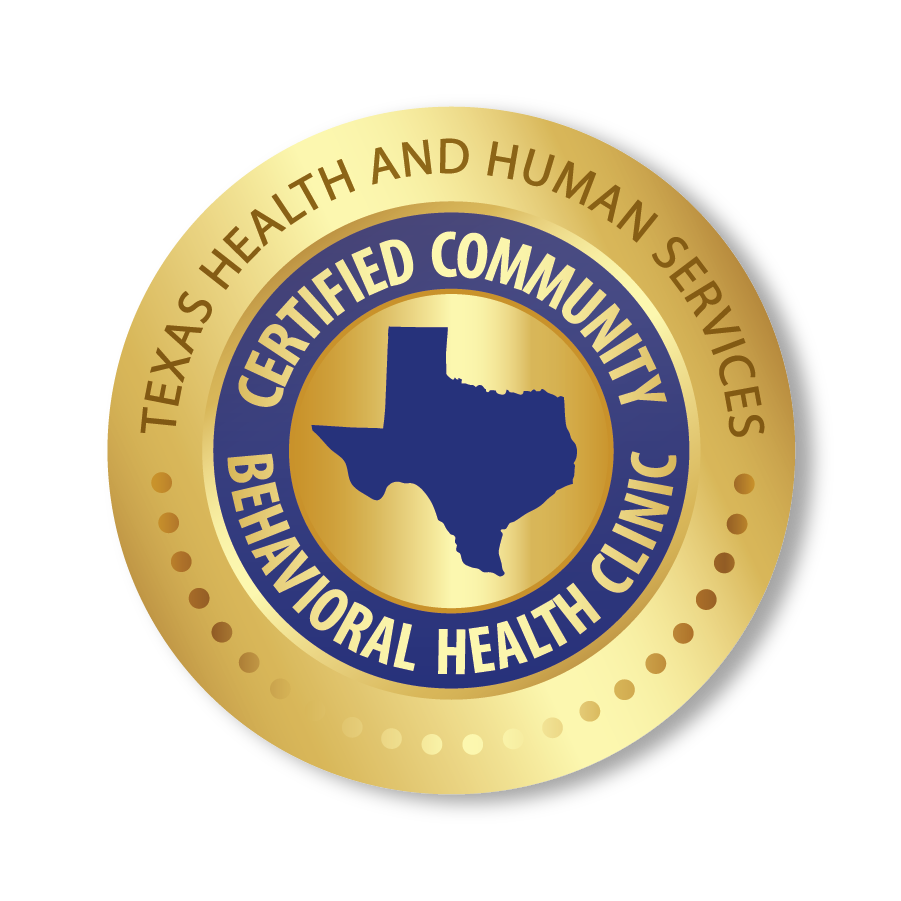

Toll Free:
1-888-819-5312
Main Phone: 361-777-3991
Fax: 361-777-2940
If you need an appointment outside of normal business hours please contact our Toll Free number above.
24/7 CRISIS HOT-LINE
1-800-841-6467
YOUTH EMPOWERMENT SERVICES INQUIRY LINE
1-800-831-6467
Main Location
200 Marriott Drive,
Portland, Texas 78374
Intellectual & Development Disabilities Services

Intellectual Disabilities are a clinical diagnosis defined as a usually permanent condition originating sometime between birth and age 18. The person’s general intellectual functioning is significantly below average (roughly an IQ of 70 or below) and his or her behavior does not meet the level of personal independence and social responsibility expected of the person’s age and culture.
A determination of eligibility is an assessment (or endorsement of an assessment), conducted in accordance with state law and the Texas Health and Human Service Commission (HHSC) rules to determine if a person has an intellectual disability or a diagnosis of a qualifying related condition for IDD services and supports.
Anyone who is interested in receiving services or referring someone for services may call:
Art Hernandez at 1-888-819-5312.
Eligibility Determination
What Is an Intellectual Disability?
An intellectual disability is a condition that usually starts before age 18.
People with this condition:
- Often have an IQ of about 70 or lower
- May need help with everyday tasks like talking, dressing, or understanding others
How Do People Qualify for Services?
To see if someone can get IDD services, they must take a test called an assessment. This test follows Texas state rules. It helps decide if the person has an intellectual disability or another condition that qualifies for help.
Getting Started with IDD Services
You will talk with an intake worker, who will schedule a meeting with you at home or at a local center. At this meeting, they will ask questions to better understand your needs. Then, a psychologist will test the person to see how they think, learn, and manage daily life. If the person qualifies, a service coordinator will be assigned to help plan services.
Wait Times:
- Mental health services (non-emergency): usually within 10 working days.
- IDD services: usually within 30 days.
Individualized Skills and Socialization (formerly Day Hab)
This program helps people learn life skills and how to get along with others so they can live and work in the community. It’s available in six locations across Coastal Plains counties.
Texas Home Living (TxHmL)
This program helps people living at home (by themselves or with family). It offers:
- Help with daily tasks
- Day programs
- Job help
- Respite care (short-term care to give families a break)
- Therapy and other support
Home and Community-Based Services (HCS)
This program helps people live in their own homes or with family. It offers:
- Help with living in apartments, group homes, or with family
- Job help
- Respite care
- Therapy and counseling
- Day programs and planning services
Crisis Intervention
This service helps people with disabilities during a mental health or behavior crisis.
Crisis Respite (Out-of-Home and In-Home)
- Out-of-home respite: 24/7 care in a safe place to help someone feel better before going home.
- In-home respite: Help at the person’s home.
- IDD Respite Care: Help with daily needs and medication.
Intermediate Care Facilities (ICF/IID)
These are homes where up to six people live and get support, including:
- Help with daily care
- Medical care
- Day programs
- Community activities
You can still be on waiting lists for other programs like HCS or TxHmL while using this option.
To apply or learn more, contact Mr. Art Hernandez at 1-888-819-5312.
Immediate Care Facilities
The Intermediate Care Facilities for Individuals with an Intellectual Disability (ICF/IID) program is a community-based residential service option, provided in homes with six or fewer individuals. This ICF/IID program provides similar services provided in an HCS residential home. The services include staff available to assist individuals with identified needs, access to medical care, the opportunity to attend Day Habilitation or similar programs, and participation in community activities.
If you choose to access the ICF/IID residential option, you are able to keep your current placement on interest lists for home and community-based waiver services, such as HCS, Texas Home Living, Community Living Assistance and Support Services, and Deaf Blind with Multiple Disabilities programs.
For information about the ICF/IID program, please visit:
Information at “DADS” Provider Services allows you to search ICFs/IID homes with vacancies by county, city or zip code. It also lists any special services or areas of expertise.
If you are interested in this residential option, please contact Mr. Art Hernandez at, 1-888-819-5312. We will assist you in applying for the service. The application process for admission to an ICF/IID involves sharing an individual’s diagnosis and medical and support needs with ICF/IID providers to ensure they have the appropriate services and resources to best meet an individual’s needs.
Service Coordination
A Service Coordinator helps you find and use the services you need, such as:
- Medical care
- Education support
- Social services
- Community programs
They also check in with you regularly to make sure things are going well and that your needs are being met.
Community First Choice
This program helps people with personal care needs and daily living skills. Services may include help with:
- Bathing, dressing, and eating
- Learning how to take care of yourself
- Building independence
Your Managed Care Organization (MCO) will help plan these services after an assessment.
Preadmission Screening and Resident Review (PASRR)
PASRR helps people with intellectual or developmental disabilities (IDD) who are moving into a nursing home. The goal is to make sure they get the right support.
Services may include:
- Case management
- Physical, speech, or occupational therapy
- Day programs
- Help with skills to live more independently